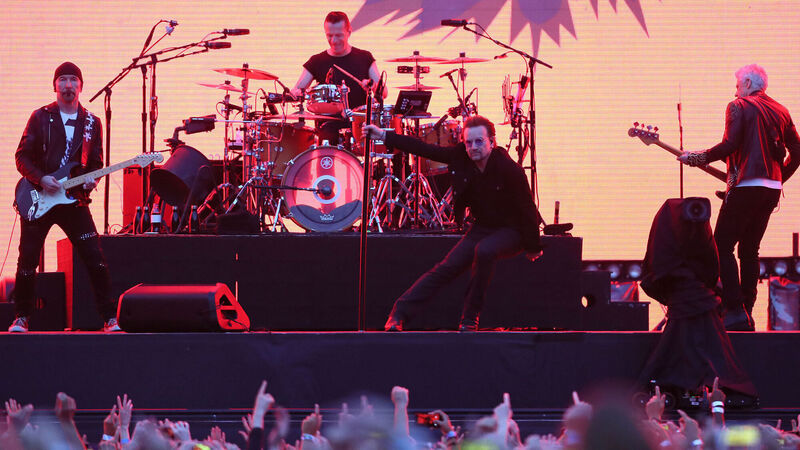Letters to the Editor: Croke Park 2026 calendar should be nailed down now

U2 performing at Croke Park in 2017. A reader says decisions about next year's GAA calendar should not depend on pop artists' tour schedules. File picture: Brian Lawless/PA
Once again, John Fogarty, your GAA correspondent, is quite correct (Irish Examiner, August 6). He said GAA president Jarlath Burns should make a decision now on the dates for the All-Ireland finals next year. But it is a pity, and it should not be, that the likelihood of U2 or some other rock band playing in Croke Park next summer seems to be affecting the president’s early decision on these dates.
Of course, the above is not the only problem which concerns many GAA supporters, myself included at the present time. I am not aware of anybody who agrees with the penalties, the very short inter-county championship season, and the fact that no club games are being played during the summer months.








